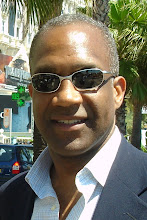 The phrase, "Not in my back yard" (a. k. a. NIMBY), is commonly used to identify an attitude of individual benefit at the expense of someone else.
The phrase, "Not in my back yard" (a. k. a. NIMBY), is commonly used to identify an attitude of individual benefit at the expense of someone else. One need not wait long to see this attitude displayed. For example, while many folks are eager to close detention camps, such as the one in Guantanamo Bay, Cuba, few are willing to have Guantanamo detainees imprisoned in their home state. NIMBY.
The financing of universal health care coverage for Americans is the latest example of NIMBY. According to recent news reports, a couple earning more than $350,000 a year would suffer a surcharge amounting to between 1 percent and 5.4 percent of their income to raise funds for the health care plan. It is estimated that this plan would affect approximately 1.2 percent of all households, and would raise one-half of what would be needed to fund the scheme, with the other half coming from savings in Medicare and other health care programs.
I don't think much of this idea, and it is not because my wife and I earn more than $350,000 a year. We don't. I resist this idea because it requires only 1.2 percent of the population to contribute to a benefit received by the remaining 98.8 percent of the nation.
One definition of fairness is whether -- all things being equal -- you would continue to like a particular idea if the roles were reversed. In this case, government proposes to take more from one, small, segment of the population for no apparent reason other than it has the political and legislative muscle to do so without a fight from its victim. On the street, that is called "strong-arm robbery," and it is as illegal as it is morally wrong.
I do not mind paying taxes, whether of the general variety, such as income taxes, which support a variety of programs for our corporate benefit; or the specific variety, such as gasoline taxes, which go toward road maintenance and are more or less tied to how much one uses the streets and highways. "Render to Caesar what belongs to Caesar. . ."
What I see in the proposed plan is an attempt to pass a greater share of the cost of of a general benefit -- in this case, universal health care -- on to a sliver of the citizenry presumed to be more able to carry the load. For the higher tariff, I don't think that those who pay more will receive a greater benefit or more generous amenities, such as a priority line for medical appointments or expedited prescription drug refills. Nope. They will receive the same level of service that 98.8 percent of their fellow-citizens receive, except they will pay more for it.
In His Sermon on the Mount, Jesus talked about fairness in a maxim we today call "the Golden Rule": "Do unto others as you would have others do to you." (Matthew 7: 12a)
Selecting a burden for others that we ourselves would not willingly bear may, by act of the Congress, be legal, but it can never be right.
I don't think much of this idea, and it is not because my wife and I earn more than $350,000 a year. We don't. I resist this idea because it requires only 1.2 percent of the population to contribute to a benefit received by the remaining 98.8 percent of the nation.
One definition of fairness is whether -- all things being equal -- you would continue to like a particular idea if the roles were reversed. In this case, government proposes to take more from one, small, segment of the population for no apparent reason other than it has the political and legislative muscle to do so without a fight from its victim. On the street, that is called "strong-arm robbery," and it is as illegal as it is morally wrong.
I do not mind paying taxes, whether of the general variety, such as income taxes, which support a variety of programs for our corporate benefit; or the specific variety, such as gasoline taxes, which go toward road maintenance and are more or less tied to how much one uses the streets and highways. "Render to Caesar what belongs to Caesar. . ."
What I see in the proposed plan is an attempt to pass a greater share of the cost of of a general benefit -- in this case, universal health care -- on to a sliver of the citizenry presumed to be more able to carry the load. For the higher tariff, I don't think that those who pay more will receive a greater benefit or more generous amenities, such as a priority line for medical appointments or expedited prescription drug refills. Nope. They will receive the same level of service that 98.8 percent of their fellow-citizens receive, except they will pay more for it.
In His Sermon on the Mount, Jesus talked about fairness in a maxim we today call "the Golden Rule": "Do unto others as you would have others do to you." (Matthew 7: 12a)
Selecting a burden for others that we ourselves would not willingly bear may, by act of the Congress, be legal, but it can never be right.




No comments:
Post a Comment